Here’s a classic case of a legend overshadowing a man behind it. A monster that is DEEP PURPLE wouldn’t be as massive if not for the band’s first line-up’s heavy leanings of bassist Nick Simper and a certain guitar player. But once Simper was out of it, only a few people have followed his career which produced so much great music. Back to his rock ‘n’ roll roots with GOOD OL’ BOYS currently, Nick’s still doing what he does best – locking into the groove with full abandon. Quite like he took it to our conversation.
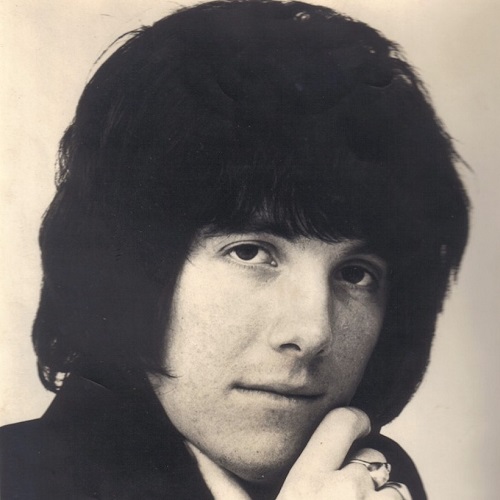
– Nick, your stint with DEEP PURPLE lasted less than year and a half. Having made much more interesting music afterwards, don’t you feel it a bit offensive that you’re remembered mostly for that gig?
I am very lucky to have worked with some great bands, but people naturally remember me for DEEP PURPLE because they were the biggest success commercially. No, I do not find that offensive, in fact I think it is a bonus in a musical career to be remembered at all!
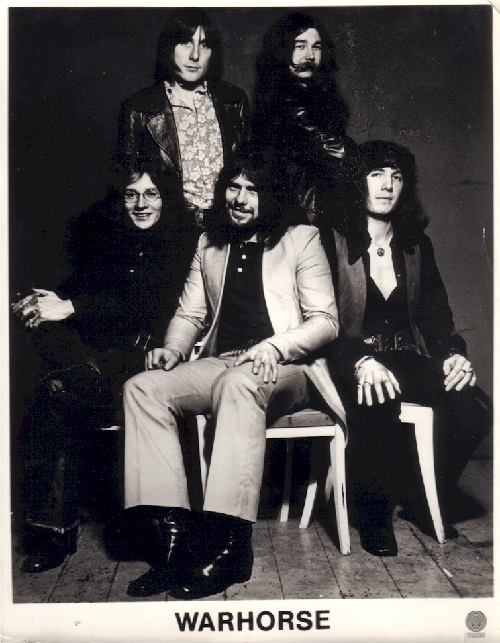
– PURPLE were the most famous band you took a part in. But which band you found most rewarding emotionally to be in?
Without a doubt the answer has to be WARHORSE. The combination of personalities and original ideas was a huge antidote to the DEEP PURPLE experience, and for me a far more rewarding time. Of course, success is only measured by record sales, but I will always think of WARHORSE as the better band.
– There’s a great interest in WARHORSE’s live recordings – old and from the reunion. Will anything be released any day soon?
The 1974 recordings will never be released because the sound quality is too poor. The reunion tapes are pretty good and, in my opinion, worthy of release, but the WARHORSE members are divided on the issue. Personally I hope that agreement can be reached in order to release a live album before long.
– Where and how did you discover Rick Wakeman’s talent and did you ever regret he didn’t stay with WARHORSE?
I was introduced to Rick Wakeman in 1968 by ex-FLINSTONE member and Joe Meek artist Rod Freeman, at his West London home, where the two of them were attempting to write new material. “Ritchie” Wakeman, as he called himself then, was working with Rod in THE RONNIE SMITH BAND at the Top Rank Ballroom in Reading. Post-PURPLE, I did several BBC radio sessions with rock singer James Royal which featured Rick on keyboards, and it was obvious that he had considerable talent. We got on pretty well and Rick said that he would like to be involved if ever I formed a new outfit. He jumped at the chance to join WARHORSE, but he seemed very uneasy adapting to hard rock, and at that time lacked the necessary commitment needed to launch a new band. There were no regrets when we parted company.
– Was Rick planned to be producing the band’s third album?
When Rick’s career was peaking with YES, he expressed interest in producing a third WARHORSE album, helping with several demo recordings. However, his solo career left him with little time and the plans were shelved. The success of his solo venture led to him recruiting Ashley Holt and Barney James, resulting in the collapse of WARHORSE in 1974.
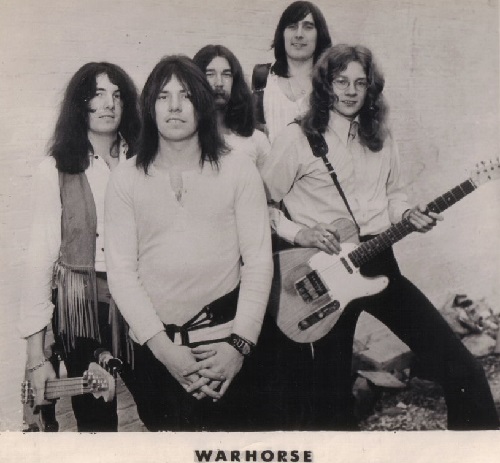
– Was it you who brought Ashley Holt to audition for what was to become DEEP PURPLE?
No, it was Rod Freeman who suggested that we listen to Ashley Holt, who was also in THE RONNIE SMITH BAND. Unfortunately, we were all extremely fatigued by the audition process, being besieged by more vocalists than we ever imagined would show up and, sadly, not giving them the attention they deserved! Ashley elected to audition with soul material, which was not what we wanted to hear, although we did not really know then what we were looking for. The result was that Ashley never really got a fair hearing. Later on, once I heard what he was capable of, it dawned on me that we had passed up one of the greatest voices in the business, and certainly, in my opinion, far better than any of the various vocalists who fronted DEEP PURPLE. In all my years in the business I have yet to hear anyone who can match Ashley’s awesome range and power!
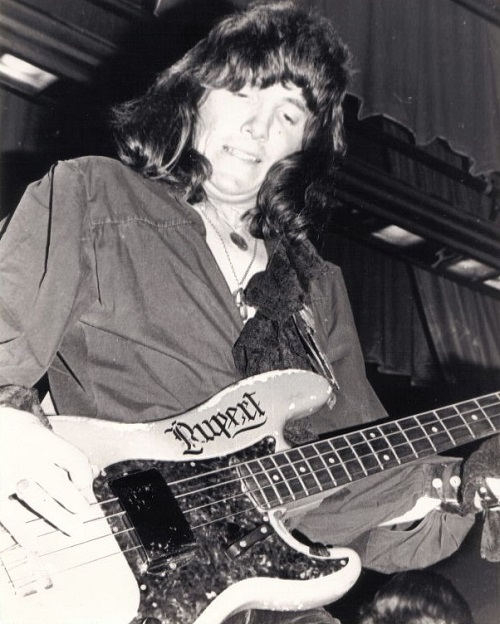
– Having been out of PURPLE, do you think you’d fit the new direction the group were taking?
As I have said before, the direction was not new, but the same direction as Ritchie and myself had pushed for from the start. This direction had been stifled by Jon Lord’s classical influences, but finally emerged victorious, pushing aside the conflicting classical sound. As Jerry Bloom pointed out in one of the many DEEP PURPLE documentaries, WARHORSE was every bit as heavy, and rocked just as hard!
– You and Ritchie Blackmore played a show with Lord Sutch in 1971. Were you on speaking terms then?
No. Dave Sutch conned me into doing the gig, by promising that Albert Lee would be playing. It worked, and I left my sick bed in order to gig with Albert.
– You played THE EASYBEATS’ “St. Louis” with PURPLE, WARHORSE and DYNAMITE. What’s so special about this number?
DEEP PURPLE never played St. Louis. [Harry] Vanda and [George] Young have always been amongst my favourite songwriters and WARHORSE included the song in our show, eventually releasing it as a single. The DYNAMITE line-up were asked by Stallion Records to cover the tune after hearing the WARHORSE version, so we gave it a different treatment. Personally, I love the song, and it is always well received by audiences!
– Some time ago you said you were rehearsing with Joe Lynn Turner. Did anything come out of this collaboration? And have you ever heard of the band FANDANGO he was in around the same time you had a FANDANGO of your own?
I have never rehearsed with Joe Lynn Turner, or even met him. I’m sorry that you misunderstood my comment, which was a tongue-in-cheek dig at DEEP PURPLE, a joke, not meant to be taken seriously. I think that Joe is a great singer. I haven’t heard his FANDANGO, although I’m sure it was a good outfit. The fact that my band at the time had the same name was pure coincidence.
– You’ve been working with Peter Parks for a long long time. What makes this connection so strong?
Pete Parks has been one of my closest friends ever since he joined WARHORSE. I have always loved his style and technique, and we have enjoyed writing songs together. The combination of his playing and personality has always appealed to me, and I cannot think of anyone I would rather work with! Pete is a very modest man, but without doubt one of the finest players in the business!
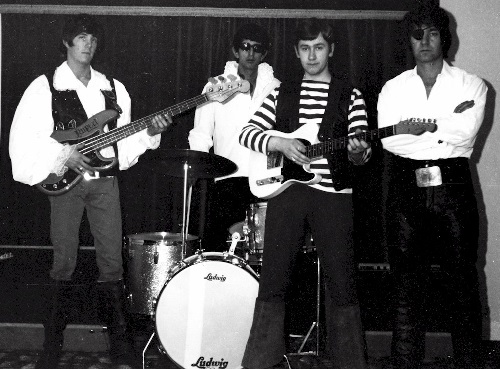
– Of all the drummers you played with, who’s been the most satisfying for you as a rhythm section partner?
I have been extremely lucky to have partnered some of the best drummers in the business, including such greats as Mac Poole, Carlo Little and Richard Hudson, so you could say that I have been spoiled! I do not think I could say that any one player was better than another, and I have learnt from them all, starting with Roger Truth when I first turned professional. If I was pushed to pick one player as my favourite, then it would have to be Carlo Little, because during a thirty-nine year period, I worked with him more than any other drummer, and I like to think that we got it right most of the time.
– The story you’re posting on your site is a great overview of the Sixties’ British rock scene rather than an autobiography as such. Is it difficult to be as unassuming an author as you are?
Thank you for the compliment. It is not difficult to be unassuming as a writer, for, although I am aware that many people appreciate my small contribution to music, I am also aware that there are many people out there who possess more talent, and have achieved much more than I have. At the same time, I am proud of my own capabilities, and I am probably not as modest as I sound!
– Do you plan to turn it in a book when you finish a story? And where will it end – in the Seventies or in the here and now?
I am occasionally told that I should write a book, and I would love to do so if the opportunity arose. Obviously, my web site contains only the very bare bones of the story. I do intend to bring it up to the present day eventually, when I will probably re-write it, adding some of the missing parts. Many thanks for your interest.
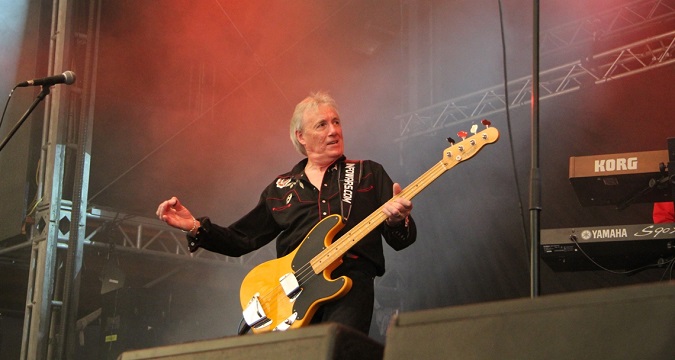
Originally published: DME – LET IT ROCK

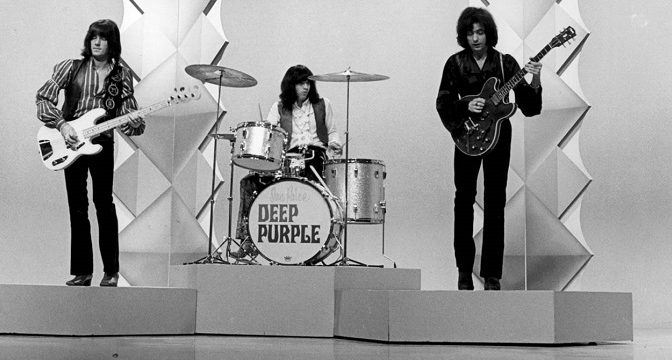
Well, thanks for this interesting interview. It contains some new piece of information for me. I really love Warhorse music.
Dmitry, díky!